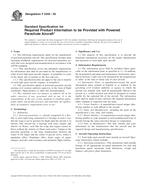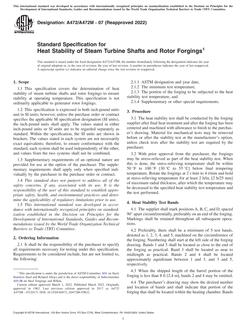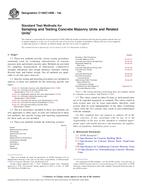1.1 This practice covers guidelines for evaluating precision and serves as the governing practice for interlaboratory test programs (ITP) used to evaluate precision for test methods as used in the rubber manufacturing and the carbon black industries. This practice uses the basic one way analysis of variance calculation algorithms of Practice E691. Although bias is not evaluated in this practice, it is an essential concept in understanding precision evaluation.
1.2 This practice applies to test methods that have test results expressed in terms of a quantitative continuous variable. Although exceptions may occur, it is in general limited to test methods that are fully developed and in routine use in a number of laboratories.
1.3 Two precision evaluation methods are given that are described as robust statistical procedures that attempt to eliminate or substantially decrease the influence of outliers. The first is a General Precision procedure intended for all test methods in the rubber manufacturing industry, and the second is a specific variation of the general precision procedure designated as Special Precision, that applies to carbon black testing. Both of these procedures use the same uniform level experimental design and the Mandel h and k statistics to review the precision database for potential outliers. However, they use slight modifications in the procedure for rejecting incompatible data values as outliers. The Special Precision procedure is specific as to the number of replicates per database cell or material-laboratory combination.
Product Details
- Published:
- 05/01/2011
- Number of Pages:
- 60
- File Size:
- 1 file , 1.2 MB


